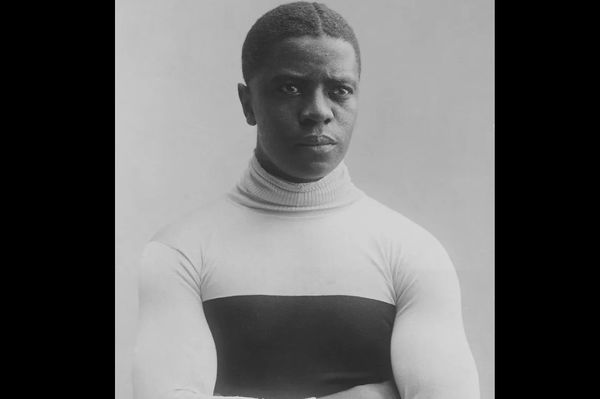

Marshall Taylor is a name that not many were aware of until recent times. Apart from being a cycling great, Taylor was also the very first global superstar who was of Afro-American origin. Unfortunately, his greatness was forgotten by people, and Taylor almost got lost in time after his retirement in 1910. However, as all good things self-radiate into existence, Marshall’s story too resurfaced. In the year 1988, an author named Andrew Ritchie invoked everyone’s interest in the personality through his book, ‘Major Taylor: The Extraordinary Tale Of A Champion Bicycle Rider’.
As people now cherish the incredible contributions of Taylor to the realm of cycling, let us take a trip down memory lane to rejuvenate our memories with the decorated life of Marshall Major Taylor.
ADVERTISEMENT
Article continues below this ad
Marshall Taylor: A trip down memory lane
Taylor was born in 1878 and grew up in Indianapolis. His father, who was a retired Civil War officer, made the best decision of his life when he gifted his child a bicycle. Soon, Taylor’s talents began to get noticed. He became well-equipped with several tricks on his bicycle and even performed them outside of a shop to entice customers. However, young Taylor had the first roadblock in his life when the YMCA shunned him for his color.
Unperturbed by the setback, Taylor started participating in races that did not deny athletes of color from competing. His impeccable talents soon caught the eyes of Louis ‘Birdie’ Munger, who was shocked at the youngster’s speed. Taylor clocked an incredible time riding a mile within two minutes and nine seconds. This was just a couple of seconds shy of the cycling world record in 1893. Munger then decided to mentor and sponsor Taylor and also registered him in a contrastingly progressive YMCA in Worcester. Taylor spent the majority of his life here from 1895 to 1930, perfecting his art and becoming the champion of the game.
Taylor received a lot of nicknames due to his mind-boggling talent. The people of Worcester lovingly addressed him as the “Worcester Whirlwind.” Michael Kranish, the journalist who wrote Taylor’s biography in 2019 termed him as the “World’s Fastest Man”. A look at his record would justify that these names were not merely ornamental. Taylor rode a kilometer in 1898 under 57.6 seconds, which looks impeccable if compared to the present-day world record. Using state-of-the-art equipment, the current record stands at 55.433 seconds by Jeffrey Hoogland of The Netherlands.
Unfortunately, as all great men have to face pain and hardships, the discrimination faced by Taylor was heart-wrenching.
ADVERTISEMENT
Article continues below this ad
Marshall Taylor’s racial tale of cycling sorrow
Despite bringing America right up onto the map of cycling, Taylor was met with substantial oppression. The modern-day League of American Bicyclists refused to allow athletes of color. Thus, Taylor got banned and humiliated publicly. Newspapers openly mocked the athlete by sketching derogatory caricatures and people booed him by singing ‘Dixie’, which resembled racism. The situation worsened to the extent that during a race in Massachusetts, Taylor was harmed physically, being choked into unconsciousness by a white cyclist.
However, his talent was far beyond racial oppression. Taylor was welcomed with open arms by several European countries, Australia and Canada. Fans raised him up with all the love and he would find himself racing amidst a cheerful, jam-packed crowd. Marshall Taylor eventually got inducted into the 1989 class of the US Bicycling Hall of Fame. An organization dedicated to promote nonviolence and sportsmanship among athletes was established in his name, The Major Taylor Association. They also erected a statue of Taylor in 2008 near the Worcester Public Library.
ADVERTISEMENT
Article continues below this ad
Thus, amidst all the controversy, when we set our eyes upon the black and white photograph on the wall of the Worcester Museum from 1901, the bulging muscles and the intense gaze of the gentleman mounted on his bike authoritatively speaks volumes that despite all the loathsome racism, Marshall Major Taylor has ultimately won.
Watch This Story: “It’s Better to Stop in a Good Way,” – Belgian Cycling Icon Greg Van Avermaet Bids Farewell After a Golden Career in Rearview
ADVERTISEMENT
ADVERTISEMENT
ADVERTISEMENT
ADVERTISEMENT

